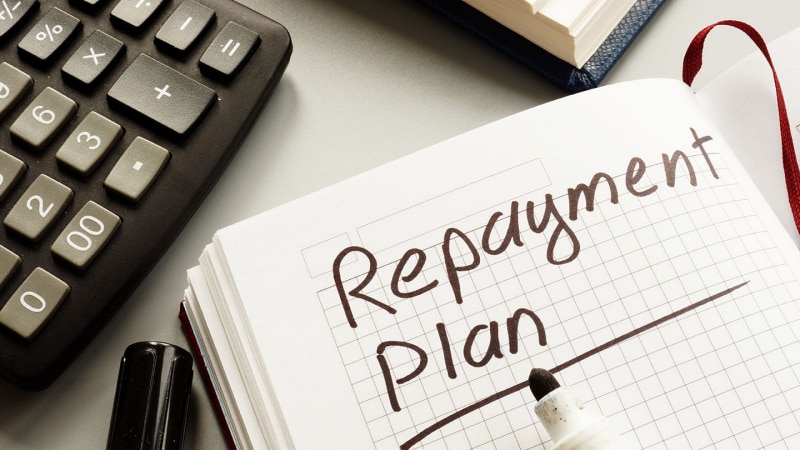What is a debt repayment plan and is it right for you?

Debt can sometimes feel like a burden that’s constantly hanging over you. While having debt may be the norm for some, if you feel like you’re having a hard time managing yours, you may want to consider creating a debt repayment plan or seeking out debt management services. The plan that works best for you may depend on things like your debt balance, interest rates and how much you can afford monthly.
What is a debt repayment plan?
A debt repayment plan is the strategy you come up with to tackle and pay back your debt. Debt repayment plans can be self-managed or created with the help of financial advisors or credit counseling services. They aim to reduce debt efficiently while minimizing interest costs and improving financial stability.
How does a debt repayment plan work?
A repayment plan that you’ve worked out with a creditor generally has fixed monthly payments that you can work into your budget. Depending on the type of debt, repayment plans may work differently.
For instance, debt such as personal loans likely already include a repayment plan that you agreed to when you applied for the loan. These loans are generally structured from the beginning with loan terms, such as interest rates and monthly payment amounts.
You may also be able to opt into a repayment plan with revolving debt, such as credit card debt. This may be helpful for people who are struggling with making monthly payments. This would require reaching out to your issuer to figure out if a repayment plan is possible. Some repayment plans may impact your credit, so be sure to check the terms of your plan.
Aside from a repayment plan, you might have a few other options for managing credit card debt. A balance transfer—moving high-interest credit card debt to one with a lower interest rate—may help you save money on interest and consolidate payments. Chase cardmembers may be able to start a balance transfer online. Alternatively, some credit cards may allow you to get a loan from your unused credit line at a lower interest rate than the purchase APR. For example, eligible Chase cardmembers can turn their available credit in a lower-APR loan through My Chase Loan.
Federal student loans generally have a number of options for repayment plans in an effort to make monthly payments more affordable. This includes options like income-driven repayment, which uses your income information to provide you with a more manageable monthly payment. Note that private student loans generally don’t offer as many debt repayment plan options.
Pros and cons of a debt repayment plan
As with most financial decisions, there are pros and cons to consider when deciding if a debt repayment plan is right for you.
Pros
- Protect credit score: A debt repayment plan can make payments more affordable, which may allow you to avoid a negative impact to your credit score due to missing payments.
- Create breathing room: Debt can feel suffocating when you have to dedicate so much of your budget to paying it off. Having more affordable payments may make your budgeting a bit less stressful.
Cons
- Slower payoff: If you’re using a debt repayment plan to make smaller monthly payments, you’ll likely be paying off that debt for a longer period of time.
- More interest: You’ll accrue more interest on a debt if you’re paying it back over a longer period at a lower monthly rate.
In summary
A debt repayment plan can be a good option if you’re struggling with your monthly payments. However, it’s important to remember that your repayment plan options will vary depending on what type of debt you’re paying off. Be sure to take the time to understand how your new payments will fit into your budget before agreeing to any terms.
Debt repayment plan FAQs
Which debts are eligible for debt repayment plans?
There are numerous factors that determine if a debt is eligible for a repayment plan, and it generally comes down to the creditor. If you’re interested in a debt repayment plan, reach out to your creditor to find out what options you may have.
How to find the best debt repayment plan for you
If you aren’t sure what type of debt repayment plan you should pursue, talk to a credit counseling agency or another financial professional for advice.



